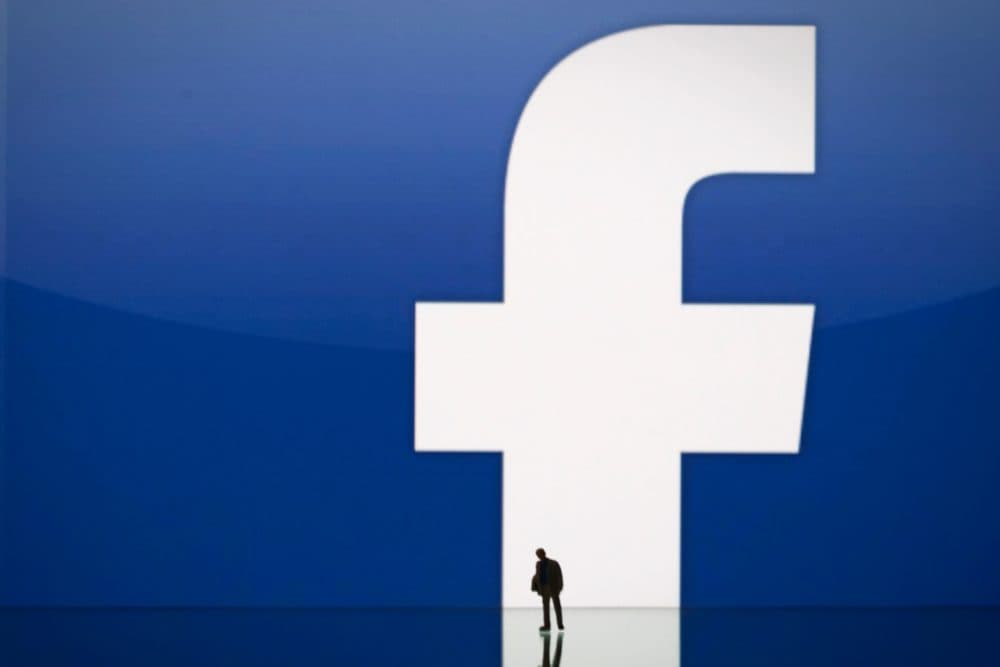Advertisement
Facebook's whistleblower and the social media giant's 'Big Tobacco' moment
Resume
Facebook brags that it’s made the world more open billions of people. But whistleblower Frances Haugen says the company itself has not been open.
What has it been hiding? Its own internal research, which says its algorithms are making the world less safe.
On Tuesday, she shared that research with a Senate committee. Committee chair Richard Blumenthal said she’s changed the course of history.
Today, On Point: From words to action, what would it take for this to become Facebook's 'Big Tobacco' moment?
Guests
Sharon Eubanks, lead counsel at the National Whistleblower Center. Author of "Bad Acts." (@SharonYEubanks)
Kate Klonick, assistant professor at St. John’s Law School. (@Klonick)
Phil Weiser, attorney General of Colorado. He is leading a coalition of 46 state attorneys general in an antitrust lawsuit against Facebook. (@pweiser)
Interview Highlights
Senator Richard Blumenthal called this Facebook's Big Tobacco moment. Is it?
Sharon Eubanks: "You could say yes to that. I mean, for 50 years, the tobacco industry reigned supreme and avoided liability and regulation. And once the documents came out and they could no longer deny what they were doing — and the documents presented such an ugly picture of some of the things that the industry knew and hid from the public — that they had to come clean. And finally, in 2009, regulation happened and the companies were regulated. It's not perfect regulation, but it's like any other. It's moving in that direction."
46 state attorneys general are pursuing an antitrust lawsuit against Facebook. What are you alleging?
Phil Weiser: "Over a period of really a decade or more, Facebook had a strategy. Either they were going to buy upstart rivals, or they were going to bury them. And we compared Facebook's policies to how they treated customers, how they treated private information, when there was more competition, when they were going head to head with MySpace, versus when they had established their dominance.
"And they maintained their dominance through what antitrust lawyers would call predatory means. Which is buying an upstart or telling an upstart, we're going to drive you out of business by denying access to information and finding ways to undermine you. So, for example, Vine was a rival service. They were driven out of business. Other services like Instagram and WhatsApp that pose real threats were purchased in a way to subvert the competitive process. That's not how it's supposed to work. That's why we're in court against Facebook."
Next steps for regulating Facebook
Sharon Eubanks: "We have to decide. We have to make sure that we bring the big guns. No more, Mr. Nice Guy. That means potential litigation is a part of any solution. Even more evidence will come to light through discovery and litigation, but the government should conduct a thorough examination of all of its statutes and make a determination of whether what we know about the conduct of Facebook is actionable under any of those statutes. And if it is, they should bring cases appropriately.
"The other thing that needs to happen at the same time is regulation. We can't keep saying it's just too hard to do. We need to regulate this industry. And if that involves working with Mark Zuckerberg or his people, that's fine. Just have your eyes open about what you're looking at and insist on getting documents that you otherwise couldn't get. Just in the normal process without a lot of work.
"So I think a regulatory agency should have particular power to be able to request data from Facebook and the other companies, including data on how its algorithms work and the type of content that the algorithms amplify on Facebook's social media platforms. So I think a combination of litigation and legislation — making sure that external researchers get the data that they need to help inform the regulation."
On going beyond the FCC to manage Facebook's impact on society
Kate Klonick: "We've tried to think about managing this with the FTC, the FCC. We've thought about letting it be answered by the courts. There's all types of things. We need a new agency, and we need it to be staffed by smart people that understand this industry. And hopefully, maybe this is a watershed. Hopefully, this is a watershed moment to seeing some long term change. Less outrage and more rational thought and action towards making the internet a safer and better place for all of us."
This program aired on October 7, 2021.

